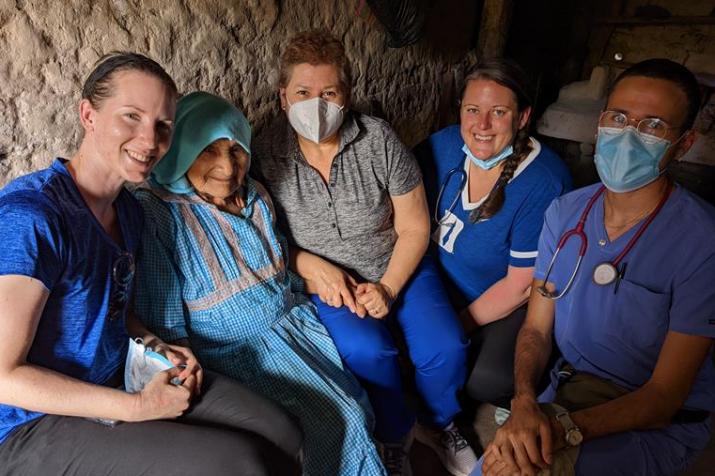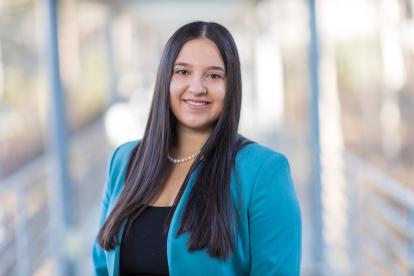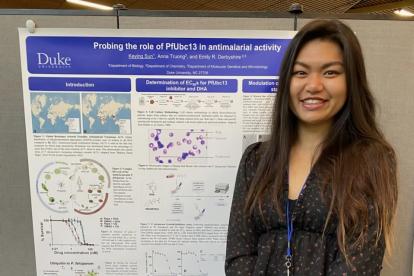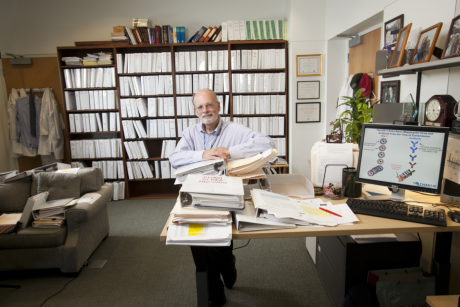
Duke medical residents hosted a clinic in Honduras in May 2022, one of the first DGHI-sponsored field trips since the start of the pandemic.
Published May 20, 2022, last updated on June 15, 2022 under Education News
With COVID-19 travel restrictions easing in many parts of the world, students will be traveling to do summer field research in large numbers for the first time since the pandemic began. Nearly 100 students will work on global health-related projects in 15 countries this summer, focusing on epilepsy, barriers to surgical care, malaria transmission, childhood vaccine hesitancy and more.
But summer fieldwork, a core part of the Duke Global Health Institute’s education programs at every level, won’t look exactly the same. The past two years, when most students did research remotely, were an opportunity to reflect on how to provide students with a more impactful experience, says Lysa MacKeen, DGHI assistant director for experiential learning.
“Now, we have a more integrated approach where we can think more constructively and make use of everyone’s time,” says MacKeen. “It emerged from the challenge of COVID and doing global health field work from an increasingly decolonized approach.”
For example, some students will spend less time at a single field location, sometimes completing early stages of research before traveling to ensure their time on the ground is immersive. Others are visiting multiple countries.
Stephanie Stan, a rising second-year Master of Science in Global Health student and a Duke-Margolis Scholar, will split her summer between Geneva, Switzerland, and Peru. In Geneva, she’ll research global health governance and attend the Sanford School Public Policy’s week-long intensive policy course. In Peru, she will conduct research for her thesis on the country’s response to COVID-19 and vaccine access.
“I’m really excited about the opportunity to work in different cultures and network in global health,” Stan says. “I’m passionate about translational policy, and how data and research can influence health policy that’s impactful and meaningful for different communities.”
All students in the Master of Science in Global Health program have the opportunity to participate in field research, as do many undergraduate global health majors and those who are part of DGHI’s Student Research Training (SRT) or other experiential learning programs. Projects will take students to countries such as China, India, Honduras, Tanzania and Uganda, as well as locations within the U.S. COVID and visa issues have imposed barriers for a few students, who will work on projects remotely.
Rising second-year master's student...

Another student traveling is Keying Sun, a senior majoring in biology and global health. She’ll work with a team assessing food insecurity in western Uganda, led by Eric Green, Ph.D., an associate professor of the practice of global health. Before transferring to Duke, Sun attended the University of California-San Diego and was not able to take a planned study abroad trip to South Africa.
“I feel very lucky to have this experience now,” says Sun. “A virtual experience can’t replace in-person because when you’re immersed in a different culture, you reevaluate your worldviews, and learn how to work in a consortium when it comes to global health.”
But the trip to Africa is personal, too. Sun, who is Chinese, was raised in Gaborone, Botswana. Her parents moved to the country after her father, a civil engineer, fell in love with the people and culture after a work visit. Although Sun’s research in Uganda begins in June, she flew home earlier this month, the first time she’s seen her parents in-person since 2019.
“I missed them a lot, and their cooking,” Sun says with a smile. “I saw how much affection they have towards me at the airport.”

Keying Sun presents a research poster at...
Sun says returning home not only makes her treasure family more, but is a reminder of the importance of global health in the scope of her upbringing. She was raised to look at society, realize her position in it, and try her best to reach out and help people.
“I’ve had a very privileged life in Botswana, and I know my childhood experience is different from others,” Sun says, noting the project in Uganda’s ties to poverty. “What led me to this project is it tackles a fundamental and root cause of [inequitable] global health.”
Kearsley Stewart, Ph.D., professor of the practice of global health and cultural anthropology, is also eagerly awaiting a summer trip to Uganda, where she is leading an SRT project on sickle-cell disease research and outreach, which will include students from both Duke and Uganda. She says fieldwork teaches students flexibility and prepares them to navigate situations that can undermine research such as weather conditions and political environments.
“Another reason why I think students should get back in the field is that we share the burden of research with our colleagues, working shoulder-to-shoulder, side-by-side,” Stewart says. “Community and team building comes from team spirit and some can be built on Zoom, but it doesn’t replace what you learn by being in the field and introduced to the communities.”
Stan hopes her field experience will help her better understand health outcomes and how decisions in one part of the world can affect a different country. She notes traveling is key to that lesson.
“For global health practitioners, it’s important for us to go to the communities we’re trying to better understand, allowing for more profound research and work,” she says. “It will be a monumental experience for me professionally and personally as I want to do similar work in my future career of global health policy work.”


